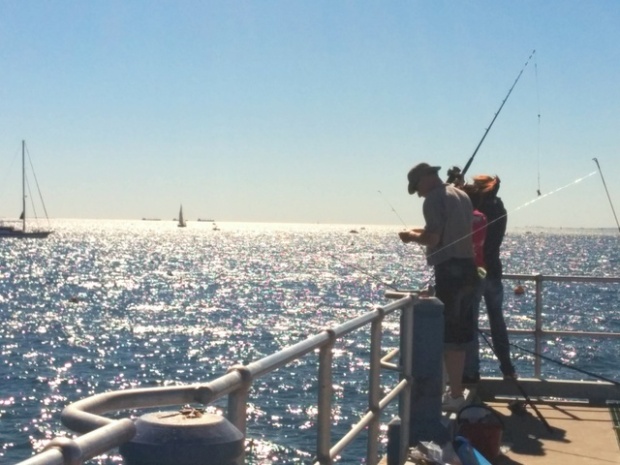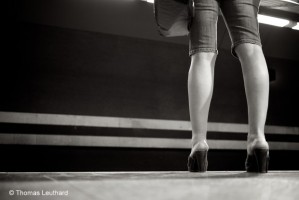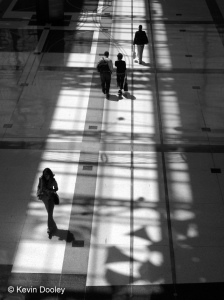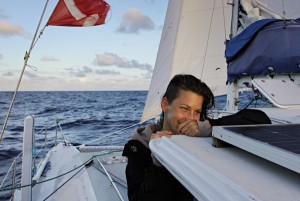Cierre
Publicado por mevoyaaustralia en Cosas mías / My stuff el marzo 14, 2021
(English version below)

9 años en Australia. Sonrío inevitablemente cuando releeo mi post de 2014, mi segundo aniversario en Australia. Después de un año sin haber escrito, me preguntaba si había alguien ahí. Hoy, después de casi seis años sin las últimas letras, ya ni siquiera me esperaba a mí misma.
Constatado el vacío, me cuento que estaba esperando inevitablemente un cierre que tiene sentido desde que Me voy a Australia dejó de ser una intención, el blog de una periodista que viajaba. Creo que ya va siendo hora.
Antes de abandonar el barco, pensé en un blog que se llamaba Al otro lado, pero me había rendido a la inevitable burocracia que conlleva intentar quedarse en Australia. No pude darle espacio. Acometido el objetivo, con una interminable lista de altos y bajos, y con un pasaporte de color azul que carece de foto con sonrisa, no queda sino la reflexión. E inevitablemente mi vuelta al tópico de la inmigración.
Ser inmigrante ya forma parte de mi identidad. Darío Sztajnszrajber le puso palabras a algo que se iba abriendo camino en mis tribulaciones y que ha derrumbado una de las creencias que estúpidamente era inequívoca en mi vida. La identidad es una constante fluida, que camina contigo y se transforma con la experiencia. Puede cambiar, pero seguirá siendo la tuya. Y tú seguirás siendo suya.
Esa revelación es la prueba de lo que ya viene pasando desde hace tiempo: tengo amigos que no son políticamente afines; la nostalgia se ha disipado y aparece como un huracán un par de veces por año; tengo acento (acento latino para los españoles, acento español para los latinos, acento español para los australianos); tengo faltas de ortografía en español; me pido un café con leche en vez de una coca-cola con el almuerzo; me peleo a muerte cuando alguien llama paella a un arroz pasado con chorizo y guisantes; y tengo nuevos himnos: English Man in New York, Movimiento, Tabú, Internacionales.
Ya no soy yo, y soy más yo que nunca. Y puedo defenderlo.
A esto y a lo que sigue se le llama vida.
Closure
9 years in Australia. I cannot stop laughing when I read my post from 2014 about my second anniversary in Australia. It had been a year since the last time I had written a post and I was wondering if there would be someone there, reading. After six years from my last post I was not even expecting me.
Noted the void, I now realise I was inevitably waiting for an ending. It makes sense since the blog ‘Me voy a Australia’ (I am going to Australia) wasn’t an intention anymore, a blog of a journalist who was travelling. I think it was about time.
Before leaving the ship, I thought of creating another blog called On the other side, but I was really focused on the bureaucracy that trying to stay in Australia takes. I couldn’t give it the time. Once this was accomplished – with an endless list of ups and downs, and having in my hands a blue passport with a picture where I wasn’t allowed to smile- it is time for reflection. And this takes me irremediably to my recurrent topic of migration.
Being a migrant is inherent to my identity. Darío Sztajnszrajber clearly defined thoughts which were navigating through my tribulations, and which finally crumbled one of my very deep dysfunctional beliefs. Identity is a flowing constant, which walks beside you and evolves with your own experience. It can be different, but it will be yours. And you will be hers.
That epiphany reflects what is happening for a while now: I have friends with different political views; homesick is less frequent than before although I have few severe episodes here and there; I have accent (Latin accent for Spaniards, Spanish accent for Latins, Spanish accent for Australians); I make grammar mistakes in Spanish; I order a cappuccino instead of a coke with my brunch; I fight to death when people call ‘paella’ an undefined dish with overcooked rice, chorizo and peas; and I have new anthems: English Man in New York, Movimiento, Tabú, Internacionales.
I am not myself anymore, and I am more myself than ever. And I can stand for it.
This is called life.
Siguiente pregunta, por favor / Next question please (Esp / Eng)
Publicado por mevoyaaustralia en Cosas mías / My stuff, Tema libre el May 10, 2015
La rueda del Hámster es un programa de radio conducido por Nadia Montero y Arnau Benlloch. Este programa propone, y cito, «ideas y herramientas que puedan orientarte en tu camino hacia la felicidad y te sirvan de inspiración para el cambio». Desde la distancia, me gusta escuchar a los entrevistados y a veces tengo la suerte de estar preparada para procesar algo. Uno de los programas al que sigo dándole vueltas se llamaba Reinventarse a uno mismo. Para eso y para saber en qué quieres convertirte, si es que quieres cambiar algo, hay una solución sencilla: mirar adentro y preguntarse algo aterrador y doloroso: «¿yo qué sé hacer bien de verdad?
Para descubrirlo recomendaban ir quitándose capas de autoengaño y autocompasión y mirar a la cara a los propios miedos. La respuesta, si eres honesto contigo mismo y según la teoría, aparecerá después de ese ejercicio, aunque no es garantía de solución.
Mi naturaleza es bien jodida. Llevo toda la vida buscando. Todavía no sé qué quiero hacer, estoy enredada con las capas y, por supuesto, no sé qué sé hacer bien de verdad. Pero al menos sé algo de mí que nunca he podido ignorar: soy incapaz de engañarme a mí misma.
Así que el paso lógico es seguir pelando la cebolla, que si bien conduce a un futuro incierto me aleja de un presente que sé a dónde me lleva.
Siguiente pregunta, por favor.
Next question please
La rueda del Hamster (The hamster wheel) is a radio show conducted by Nadia Montero and Arnau Benlloch in Valencia (Spain). This program proposes ‘ideas and skills to drive you to hapiness and inspire you towards the change’. I like listening to the interviewees and when my mind is ready to listen I can process some of the information. One of the programs still in my mind was about reinventing yourself. To do it and to know who you would like to become there is an easy solution: look at oneself and make a terrifying question: ‘What can I do amazingly?’.
According to the expert who joined the program, there’s a way which consists of removing your own layers of self-delusion and self-pity and face your own fears. The answer, if you dare to be really honest, will be there after that huge task although the solution is yet to come.
The nature of my being sucks. I have spent my whole life searching and I am still there. I have no clue about what I want to do, I am in the middle of those layers and, by all means, I don’t know what I really do outstandingly well. But at least I do know something about myself that I’ve never been able to ignore: I can’t lie to myself.
The task is then to keep peeling the onion which will drive me to an uncertain future but may take me away from the current path.
Next question please.
Tres años / Three years (Esp / Eng)
Publicado por mevoyaaustralia en Tema libre el marzo 13, 2015
El 13 de marzo de 2012 miraba por la ventana de aquel avión en Barajas con la única certeza de volar hacia la incertidumbre. Era el mejor regalo que podía hacerme, la mayor apuesta, el riesgo más alto.
Cada año he vivido el aniversario con un espíritu distinto: 2013 fue el balance de la aventura, 2014 el hecho de una nueva vida, del reto, del esfuerzo. El tercer aniversario, el de 2015, llega en un mal día. Hoy estoy cansada, del papeleo, de la espera, de pelear… No soy de hierro y no siempre se puede estar en la cresta de la ola. Pero que hoy no quiera celebrar no significa que este año no haya traído nada bueno o, al menos, un clima más apacible: nueva ciudad, Perth, un trabajo en marketing y comunicación y ver el sol todos los días.
Como siempre, os echo a todos de menos, a rabiar. Creo que de eso no me voy a recuperar nunca. Pero todo llega. Y llegará. Ya ha empezado la cuenta atrás para veros.
Lo bueno es que aterricé el 15 de marzo, así que todavía tengo un día para reponerme de este bajón existencial y celebrar que, aún siendo incómodo, la incertidumbre es la única certeza.
Three years
The 13th of March of 2013 I looked out of the window from that plane in Barajas Airport (Madrid). I only knew that I was flying to the not knowing. It was the best present I could give to myself, the biggest investment and the highest risk I could have ever taken.
Every year I’ve had a different anniversary feeling: in 2013 I thought I had lived an adventurous year, in 2014 I had already realized that a new life was coming ahead. My third anniversary, the 2015 one, comes at a bad day. I feel sick and tired of collecting documents, waiting and fighting. I am not as strong as nails and you can’t always be at your peak. But even if today I don’t feel like celebrating, I can see what the year has brought me, I can see the new scenario: I live in a new city (Perth), I work in marketing and communications and I can see the sun every single day.
As always, I miss you all like crazy. I don’t think I will ever get over it. At least, my countdown to see you again has already started.
The good news is that I landed in Australia the 15th of March, so I have one extra day to recover from feeling down in the dumps and celebrate the uncomfortable but always certain not knowing.
The most incredible ninja (Eng)
Publicado por mevoyaaustralia en Cosas mías / My stuff el marzo 2, 2015
If you are a migrant in Australia -or just a migrant- I’m pretty sure you’ll find a lot of overcoming stories from ordinary people. They left their comfort zone and also left that ordinary label a while ago. Those stories have become really familiar to me. They are in my everyday context. However, I can’t make them small, as their strength hits me to make me realize how brave and determined these people are.
Some people can’t understand these life experiences as they can’t put themselves in our shoes, are jealous or can’t look in their own mirror. That attitude makes us feel judged sometimes. But seriously, I don’t care.
This is one of those stories. And the main character is Sarah Bürvenich, my bestie, a natural giver, an exceptional graphic designer, a fighter and always my favorite ninja.
I invite you to feel inspired. (originally published on medium).
It‘s A Jungle Out There …
For me, being in a zoo, makes me think of being ‘comfortable’. You don’t have to look after yourself, you’re fed, given water and even your cage is cleaned up every now and then. But in the (design)industry, ‘being comfortable’ doesn’t pay off in the long run — it doesn’t propel you forward. If you want to really develop you have to be … ’not comfortable’ for a while, and leave your comfort zone.
The first time I did so, was 7 years ago. I caught a plane and left Germany to work overseas. With a friend, I was heading to New Zealand, which is as far away as you can get (and that was kinda the idea). I had nothing lined up, I wasn’t prepared, but I was ready to dive in. The plan was … no plan. So it was a risk. But it paid off. For some reason, by luck or serendipity or because they were curious about a German so far from home, we had a job within three weeks. At a small agency doing the classic stuff: web and corporate. We stayed 8 months away from home, had adventures, and I spruced my CV in the process.
Five years later, I was at the airport again. Germany had gotten stale. And Australia awaited. This time alone, the decision was a bit more serious. I only had a one way ticket and all of my possessions in one twenty kilo backpack. (…) Keep reading
Image © Sarah Bürvenich
Burbujas / Bubbles (Esp / Eng)
Publicado por mevoyaaustralia en Cosas mías / My stuff, Tema libre el febrero 27, 2015
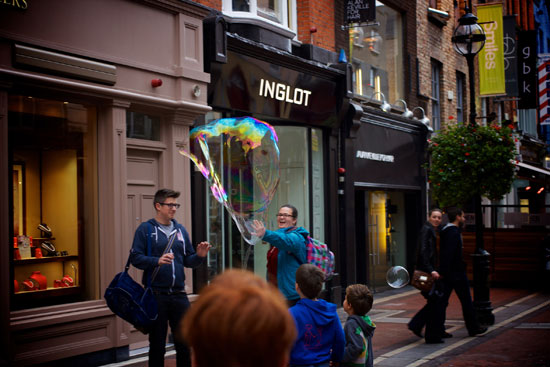
Hace dos semanas me pasó algo insólito.
Soy una controladora nata, que quede claro. Como decía, hace dos semanas llegué a casa y no quería pensar en nada. No quería saber nada del IELTS, del visado, de mi nuevo trabajo, de mis amigos, de cómo echo de menos a mis amigos, de mi familia, de cómo echo de menos a mi familia, de la maravillosa luz de Perth, de la soledad, de este blog, del inglés como mi segunda lengua, de mi teoría del vómito, de las celebraciones a las que he sido invitada, del ejercicio que debería hacer pero que no hago, de ser consciente de que soy humana, de la gente que me quita energía.
Llegué a casa y quería meterme en una burbuja. Todavía estoy dentro.
Bubbles
Two weeks ago something extraordinary happened to me.
I am a natural controller and, as I was saying, two weeks ago I got home and I didn’t want to think about anything. I didn’t want to think about the IELTS, our visa stuff, the new job, my friends, how I miss my friends, my family, how I miss my family, the awesome light of Perth, the loneliness, this blog, the English as a second language, me vomiting, the events I have been invited to, that I should go to the gym and I am not going, me not being perfect,the people who drain me.
I got home and I desired to be in a bubble. I’m still there.













































